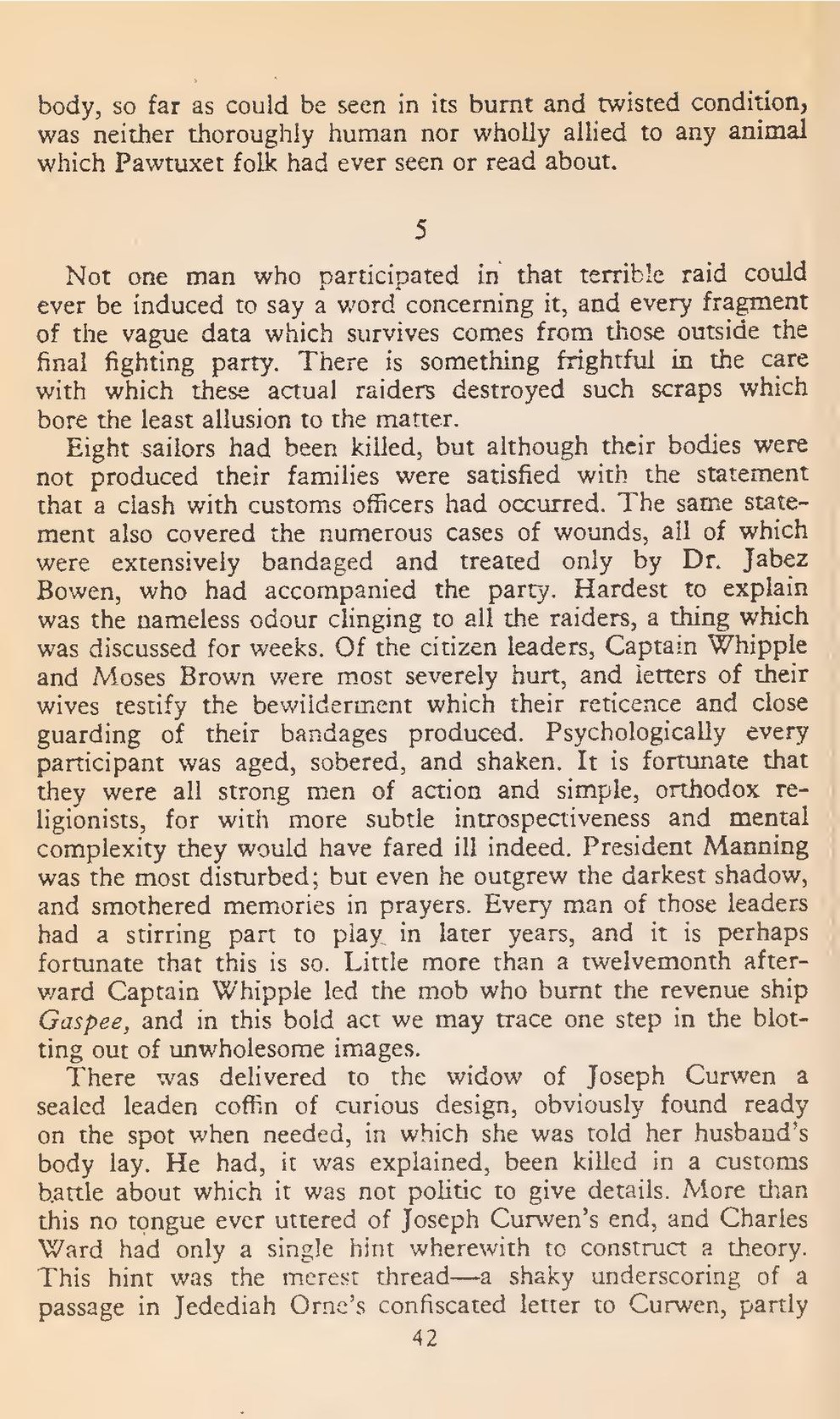body, so far as could be seen in its burnt and twisted condition, was neither thoroughly human nor wholly allied to any animal which Pawtuxet folk had ever seen or read about.
5
Not one man who participated in that terrible raid could ever be induced to say a word concerning it, and every fragment of the vague data which survives comes from those outside the final fighting party. There is something frightful in the care with which these actual raiders destroyed such scraps which bore the least allusion to the matter.
Eight sailors had been killed, but although their bodies were not produced their families were satisfied with the statement that a clash with customs officers had occurred. The same statement also covered the numerous cases of wounds, all of which were extensively bandaged and treated only by Dr. Jabez Bowen, who had accompanied the parry. Hardest to explain was the nameless odour clinging to all the raiders, a thing which was discussed for weeks. Of the citizen leaders, Captain Whipple and Moses Brown were most severely hurt, and letters of their wives testify the bewilderment which their reticence and close guarding of their bandages produced. Psychologically every participant was aged, sobered, and shaken. It is fortunate that they were all strong men of action and simple, orthodox religionists, for with more subtle introspectiveness and mental complexity they would have fared ill indeed. President Manning was the most disturbed; but even he outgrew the darkest shadow, and smothered memories in prayers. Every man of those leaders had a stirring part to play, in later years, and it is perhaps fortunate that this is so. Little more than a twelvemonth afterward Captain Whipple led the mob who burnt the revenue ship Gaspee, and in this bold act we may trace one step in the blotting out of unwholesome images.
There was delivered to the widow of Joseph Curwen a sealed leaden coffin of curious design, obviously found ready on the spot when needed, in which she was told her husband's body lay. He had, it was explained, been killed in a customs battle about which it was not politic to give details. More than this no tongue ever uttered of Joseph Curwen's end, and Charles Ward had only a single hint wherewith to construct a theory. This hint was the merest thread—a shaky underscoring of a passage in Jedediah Orne's confiscated letter to Curwen, partly
42
